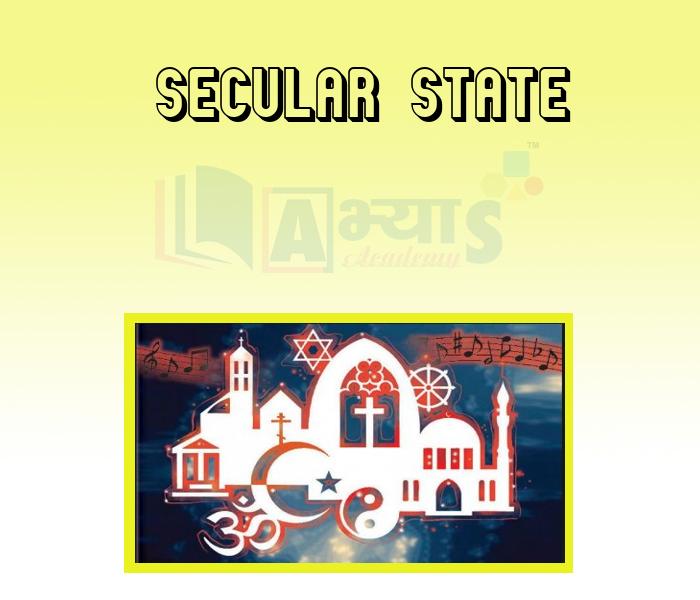Secular State










Secular State
Secular State: A state which has no official religion of its own. The secular state provides religious equality and equal status to all religions. The makers of our Constitution were aware with the challenge of communalism. Thus, our Constitution maker adopted the model of secular state. This means
1. There is no official religion for the Indian states, i.e. unlike Sri Lanka (Buddhism), Pakistan (Islam) and England (Christianity).
2. All individuals and communities have the freedom to profess, practise and propagate any religion or not to follow any.
3. It prohibits discrimination on grounds of religion.
4. It allows the state to intervene in the matters of religion in order to ensure equality within religious communities, viz, it bans untouchability.
Idea of Secularism: Secularism treats all religious groups equally in the sense that no single religion will be favoured over the other in any form. This idea constitutes one of the basic foundations of our country. Secularism is very opposite to the communalism which threatens the very idea of India. Communalism cannot be combated only with a secular Constitution. Communal prejudice and propaganda need to be countered in everyday life.Freedom of religion in India is a fundamental right guaranteed by Article 25-28 of the Constitution of India. Modern India came into existence in 1947 and the Indian constitution's preamble was amended in 1976 to state that India is a secular state.
Which type of state is India ? | |||
| Right Option : D | |||
| View Explanation | |||
In India, the official religion of the state is : | |||
| Right Option : D | |||
| View Explanation | |||
India is a secular state because : | |||
| Right Option : D | |||
| View Explanation | |||
Students / Parents Reviews [10]
About Abhyas metholodology the teachers are very nice and hardworking toward students.The Centre Head Mrs Anu Sethi is also a brilliant teacher.Abhyas has taught me how to overcome problems and has always taken my doubts and suppoeted me.

Shreya Shrivastava
8thIt has a great methodology. Students here can get analysis to their test quickly.We can learn easily through PPTs and the testing methods are good. We know that where we have to practice

Barkha Arora
10thA marvelous experience with Abhyas. I am glad to share that my ward has achieved more than enough at the Ambala ABHYAS centre. Years have passed on and more and more he has gained. May the centre flourish and develop day by day by the grace of God.

Archit Segal
7thMy experience with Abhyas academy is very good. I did not think that my every subject coming here will be so strong. The main thing is that the online tests had made me learn here more things.

Hiya Gupta
8thMy experience was very good with Abhyas academy. I am studying here from 6th class and I am satisfied by its results in my life. I improved a lot here ahead of school syllabus.

Ayan Ghosh
8thAbhyas is a complete education Institute. Here extreme care is taken by teacher with the help of regular exam. Extra classes also conducted by the institute, if the student is weak.

Om Umang
10thIt was good as the experience because as we had come here we had been improved in a such envirnment created here.Extra is taught which is beneficial for future.

Eshan Arora
8thIt was a good experience with Abhyas Academy. I even faced problems in starting but slowly and steadily overcomed. Especially reasoning classes helped me a lot.

Cheshta
10thOne of the best institutes to develope a child interest in studies.Provides SST and English knowledge also unlike other institutes. Teachers are co operative and friendly online tests andPPT develope practical knowledge also.

Aman Kumar Shrivastava
10thI have spent a wonderful time in Abhyas academy. It has made my reasoning more apt, English more stronger and Maths an interesting subject for me. It has given me a habbit of self studying
